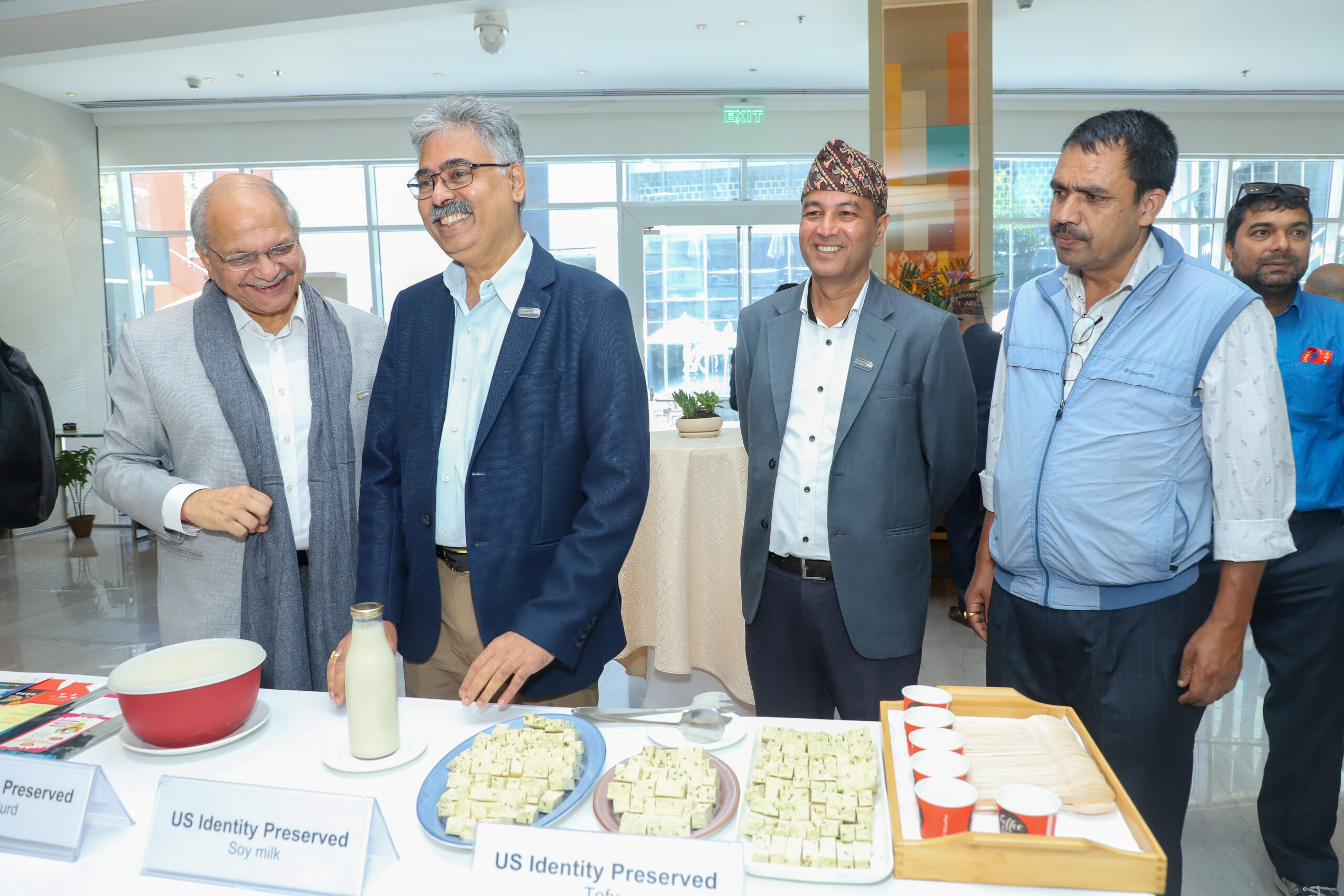U.S. Identity Preserved brandmark goes international
Korea, Nepal companies now certified to use U.S. Identity Preserved on retail packaging
Assurance of a quality product is now being felt across the world with the first international companies becoming certified to stamp the U.S. Identity Preserved mark on their food products.
The U.S. Identity Preserved assurance plan and brand mark program has been in place since December 2021. Since then, 18 U.S. companies have been certified by the program, which is managed by the Specialty Soya and Grains Alliance (SSGA). This marks the first time the brand has been licensed to foreign companies for use on their retail packaging and/or promotional materials.
“It was a hallmark day for the U.S. Identity Preserved program. The first foreign user of the brand mark and his many customers in Kathmandu are passionate about the U.S. crops they are importing and turning into wonderful, innovative foods,” said Shane Frederick, manager of strategic programs at SSGA.
The newly certified businesses include Shree Radhe Rani International Trading, a soy food company in Nepal, which was awarded its certificate on Sept. 19 during SSGA’s U.S. Identity Preserved Workshop in Kathmandu. In addition, a South Korean company recently received approval to use the mark on products made from specialty buckwheat imported from the U.S.
“It’s a privilege to use the U.S. Identity Preserved label,” said Gaurav Agrawal, managing director of Shree Radhe Rani International Trading. “We have an additional responsibility to ensure the integrity of the soybean and give 100% more in our efforts.”
Agrawal first became interested in the brandmark after attending SSGA’s inaugural Identity Preserved international Summit in Jan. 2023. He later purchased the first ever commercial shipment of identity preserved soybeans to South Asia, which arrived in March 2024.
“In just a few months since the first container of U.S. IP soybeans arrived in Nepal, consumers are already reporting differences in taste and quality, while manufacturers are seeing results in production efficiencies,” Frederick said. “They could hardly wait to show off the origin of their new ingredients.”
 Those soybeans have since appeared in a variety of soy snacks, such as roasted soy nuts and crunchy fried soy snacks, as well as tofu, soymilk, soy flour and other soy foods around Kathmandu.
Those soybeans have since appeared in a variety of soy snacks, such as roasted soy nuts and crunchy fried soy snacks, as well as tofu, soymilk, soy flour and other soy foods around Kathmandu.
One shopkeeper said, “Nepalis have noticed the taste and have made the change,” regarding tofu made with U.S. Identity Preserved beans. Reports of more consistent size, compared to local beans, makes it easier to produce the final product; a sweeter flavor and crunch as consumers seek different taste and texture. There are economic efficiencies, too, including a ready-to-make quality that eliminates extra cleaning and sorting.
All in all, there’s an ability to innovate and make more products with different tastes.
The U.S. Identity Preserved brand mark guarantees the specific, desirable traits of an identity preserved grain or oilseed grown in the U.S. are maintained throughout each step of production and transportation to the end user. Verified users of the U.S. Identity Preserved mark agree to an eight-step assurance plan to ensure the integrity of an identity preserved product from the seed to the end-user.
Companies interested in joining the U.S. Identity Preserved assurance plan or using the label on their retail packaging can learn more at usidentitypreserved.org.




